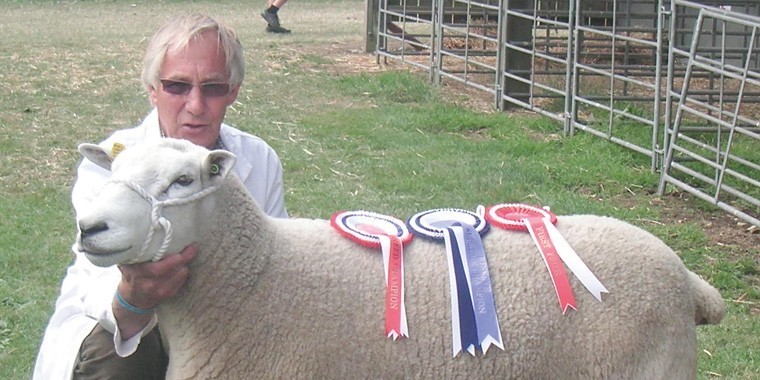With lambing – or at least the first batch finished and all out at grass – I was looking forward to a couple of weeks break before the second batch began.
But I hadn’t anticipated the “Beast from the East.” The snow wasn’t a particular problem: I’ve seen a lot worse over the years. But the cold (or a combination of the snow and cold) generated a few issues. A week that I had planned as an opportunity to regroup a little and sort out lambing facilities for batch two quickly disappeared in running around after the ewes with lambs at foot, with a lot of time spent keeping hay and, more importantly, water in front of them.
With a bit of snow on the ground the latter generally would not present a significant problem as the ewes quickly begin eating snow, which very few did this year. I suspect that is because the snow itself was so fine and cold. In reality the lambs didn’t seem to mind the snow: some of the first born even seemed to enjoy rushing around and playing in the snow. With a belly full of milk and a small, well strawed shed to retreat into when things got too cold, they were quite happy. But the ewes went into a big sulk, at least for the first couple of days.
I suspect that having just got used to a bit of green stuff in front of them they were somewhat miffed at the prospect of going back onto hay. In addition it seemed to take them a little while to start foraging in the snow for the grass hidden underneath. This is a skill that I thought some of the older girls would have remembered from the winters of 2009 and 2010. They may have good memories but maybe not long memories.
I do however think that I was rather lucky. It was an inconvenience and a bit of extra work as far as I was concerned: at least I didn’t lose any sheep, but I know that other producers were not so fortunate. I am pleased that I wasn’t lambing at the time: I know from past experience that lambing outside in those sort of conditions can be extremely trying. Sadly that is a side of sheep farming that the public just do not see. To them snow may be an inconvenience or a good excuse for a few days off. But do they not appreciate that for some, life and work simply has to go on.
With sheep in particular at this time of year, stock become the top priority and even then the weather conditions may result in some ewes and lambs being lost with all the associated costs, both financial and emotional. As an industry we are often not very good at communicating with the general public, who are after all our customers. That is why I enjoy events such as the college lambing weekend which provides an excellent opportunity to interface with our customers, most of whom are genuinely interested in what we do. In addition it provides an appropriate arena to address some of their concerns and clear up some misconceptions, which others are quite happy to spread.
Fortunately the snow soon disappeared, and was sadly replaced by some rather wet and muddy conditions. We really could do with a run of good drying days. We have had some lovely warm days, soil temperatures are moving up steadily and grass is starting to grow well. But once again we have a cold spell forecast for this weekend with a likelihood of further snow, which could slow things up again.
The snowy, cold weather also played havoc with the duty rota for our students on lambing duties at Hadlow. Treacherous road conditions prevented many of them being able to attend their lambing duties, just at a time when lambs really were coming thick and fast, resulting in labour resources being well and truly stretched. But good will often emerge out of adversity and it was those students who were able to get into the college, many of them resident, that saved the day. They rallied round and simply did whatever it was that needed to be done to ensure that lambing was able to proceed smoothly and as trouble free as any lambing can.
Many really did go the extra mile plus a bit more, demonstrating exceptional stockmanship, skills and commitment, putting the health and welfare of the ewes and lambs before their own comfort and needs. We are often quick to criticise the younger generation. But this really was an opportunity for some of them to show their true potential and they really shone.
It is nice to be able to say that I (and I’m not alone) am proud of our students. What really separates a stockperson from a “good” stockperson is not just the number and level of skills that they (and us) have acquired, the knowledge or even their ability to deploy these effectively. The key factor that separates is the level of commitment and passion: good stockmanship is as much about the heart as it is the head.
I just hope that once this weekend is out of the way, we will truly see the beginning of spring.




